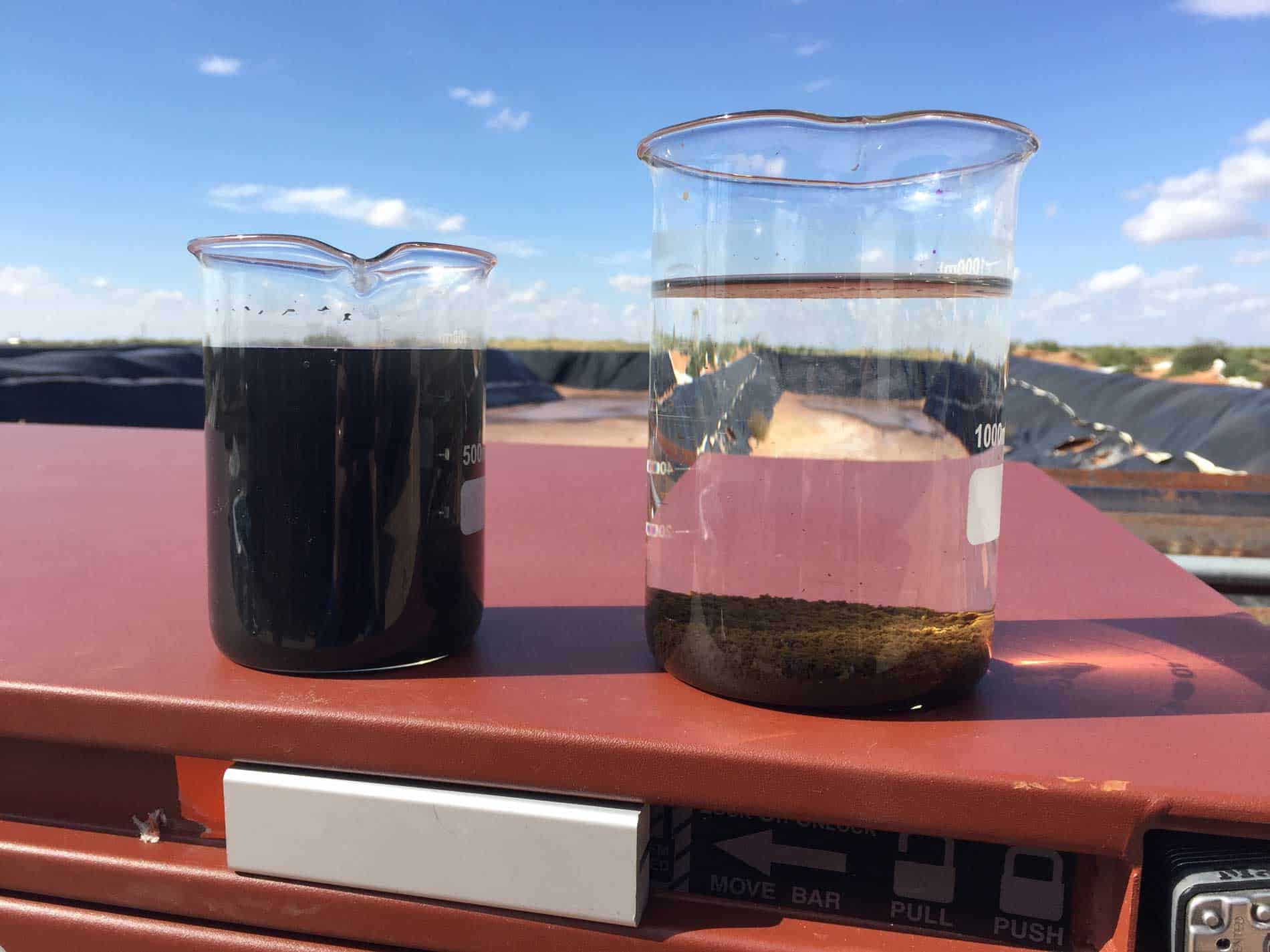ISO 10304-2 Sulfate and Chloride in Process Water IC Test
The ISO 10304 series of standards is widely recognized globally, particularly for the analysis of produced water in oil and gas operations. This standard specifically addresses the determination of sulfate and chloride levels in process waters through ion chromatography (IC). The importance of this testing cannot be overstated as it directly impacts the quality of water used in industrial processes and environmental compliance.
Produced water is a byproduct of oil and gas extraction, often containing high concentrations of salts such as sulfates and chlorides. These substances can cause significant issues if not properly managed. For instance, they may lead to scaling within pipelines, affect the performance of production equipment, or contribute to environmental harm when released into natural water bodies.
The ISO 10304-2 standard provides a robust framework for detecting these contaminants using ion chromatography. This advanced analytical technique offers high precision and accuracy, making it ideal for monitoring trace levels of sulfates and chlorides. By adhering to this international standard, laboratories ensure they meet the highest quality control and assurance requirements.
The process begins with collecting representative samples from various points within production facilities. Once collected, these samples undergo rigorous preparation steps which include filtration and dilution where necessary. The prepared samples are then introduced into an ion chromatography instrument equipped with a suitable detection system.
During the analysis, ions such as sulfates and chlorides are separated based on their charge properties and detected using a conductivity or refractive index detector. This separation allows for precise quantification of each component present in the sample. The results obtained are reported according to the guidelines provided by ISO 10304-2, ensuring consistency and comparability across different laboratories worldwide.
By implementing this testing protocol, operators can effectively manage their produced water, minimize operational risks, comply with regulatory requirements, and protect both human health and ecosystems. This approach not only enhances productivity but also contributes to sustainable practices in the industry.
| Sample Preparation | Analytical Methodology | Detection Limits |
|---|---|---|
| Filtration, dilution as required | Ion Chromatography (IC) | <1 mg/L for both sulfate and chloride |
Understanding the importance of accurate measurement is crucial for effective management. The ISO 10304-2 standard ensures that all analyses are conducted under controlled conditions, thereby providing reliable data. This reliability is essential not only for internal decision-making but also for external audits and regulatory submissions.
Scope and Methodology
- Collection of representative samples from various points within production facilities.
- Rigorous preparation steps including filtration and dilution where necessary.
- Introduction of prepared samples into an ion chromatography instrument equipped with a suitable detection system.
The methodology outlined in ISO 10304-2 ensures consistent and accurate results. The use of ion chromatography (IC) allows for the separation and quantification of sulfate and chloride ions based on their charge properties. Detection limits are set at <1 mg/L, ensuring precise measurements even at low concentrations.
The standard also emphasizes the importance of calibration and quality control measures to maintain accuracy throughout the analytical process. Regular validation against known standards further reinforces the reliability of results obtained from this testing method.
International Acceptance and Recognition
- The ISO 10304-2 standard has gained widespread acceptance across numerous countries involved in oil and gas operations worldwide.
- It is recognized for its stringent quality control measures and robust analytical techniques, ensuring consistent and accurate results.
Adherence to this international standard not only enhances the credibility of testing but also facilitates easier communication between different stakeholders within an organization. Whether you're a quality manager overseeing production processes or a compliance officer ensuring regulatory adherence, using ISO 10304-2 can provide peace of mind knowing that your data is reliable and internationally accepted.
Moreover, by aligning with this standard, companies demonstrate their commitment to best practices in water management. This alignment fosters trust among clients, partners, and regulators alike, contributing to a positive reputation within the industry.
Competitive Advantage and Market Impact
- Enhanced reputation through adherence to international standards.
- Improved operational efficiency by identifying potential issues early on.
- Promotion of sustainable practices that benefit both the environment and business.
The implementation of ISO 10304-2 Sulfate and Chloride in Process Water IC Test brings several competitive advantages to companies operating within the oil and gas sector. By ensuring consistent and accurate measurements, organizations can make informed decisions regarding water management strategies. Early identification of potential problems allows for proactive solutions, minimizing downtime and costs associated with repairs or replacements.
Furthermore, this standard promotes sustainable practices which are increasingly becoming a priority for stakeholders across all sectors. Demonstrating commitment to environmental responsibility through rigorous testing aligns an organization's values with those expected by consumers and regulatory bodies alike. Such actions can lead to enhanced brand loyalty and better market positioning in competitive environments.





